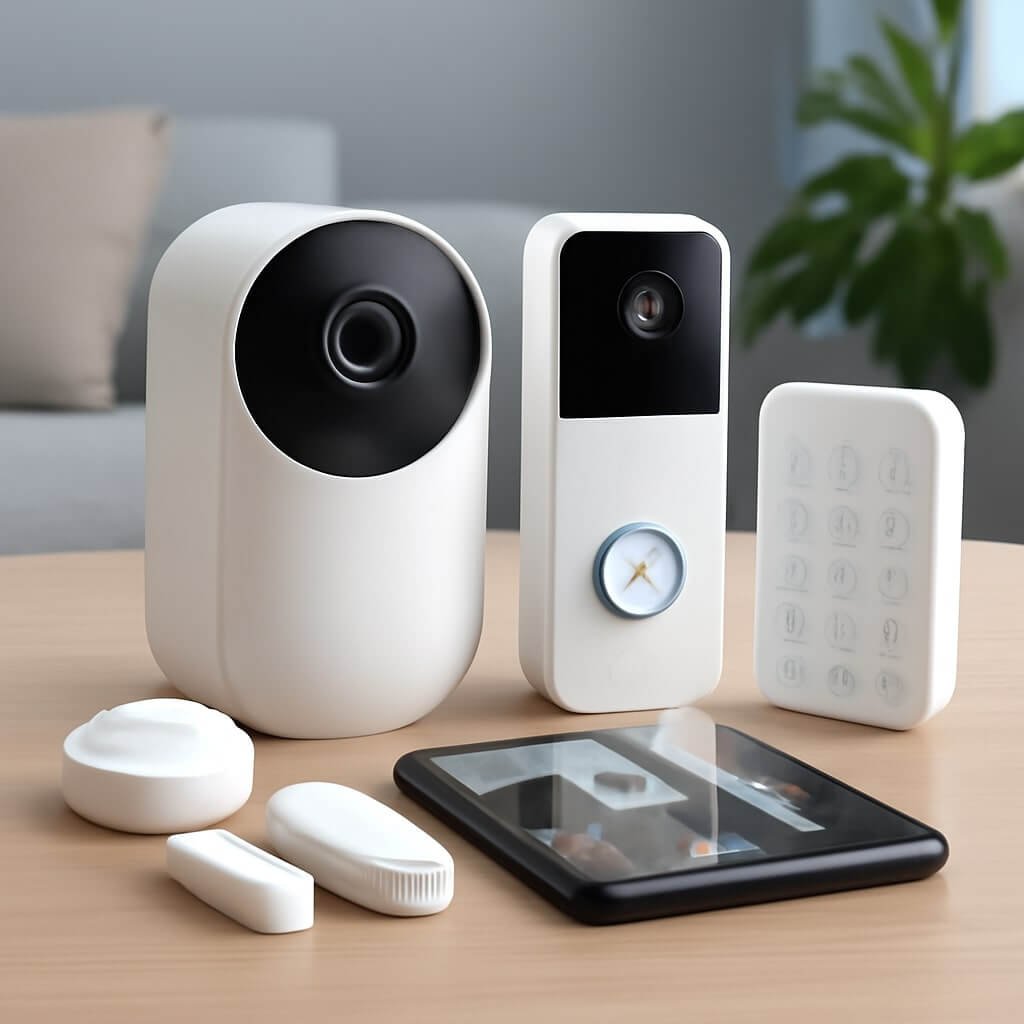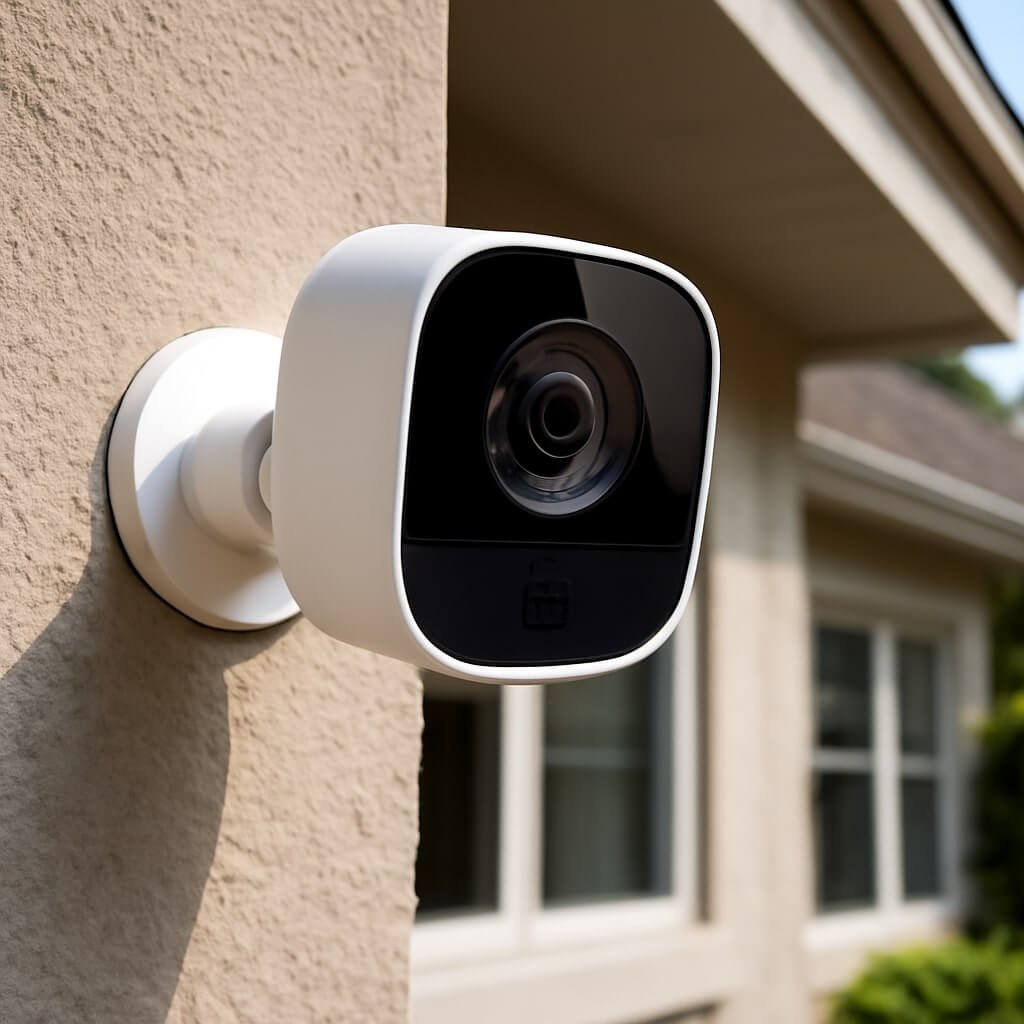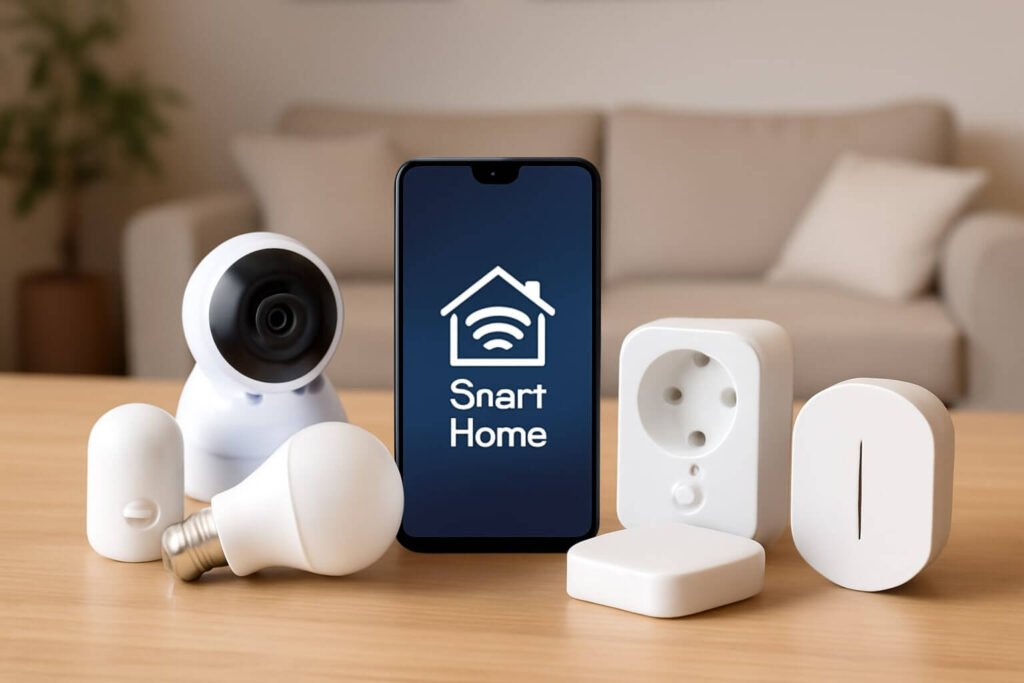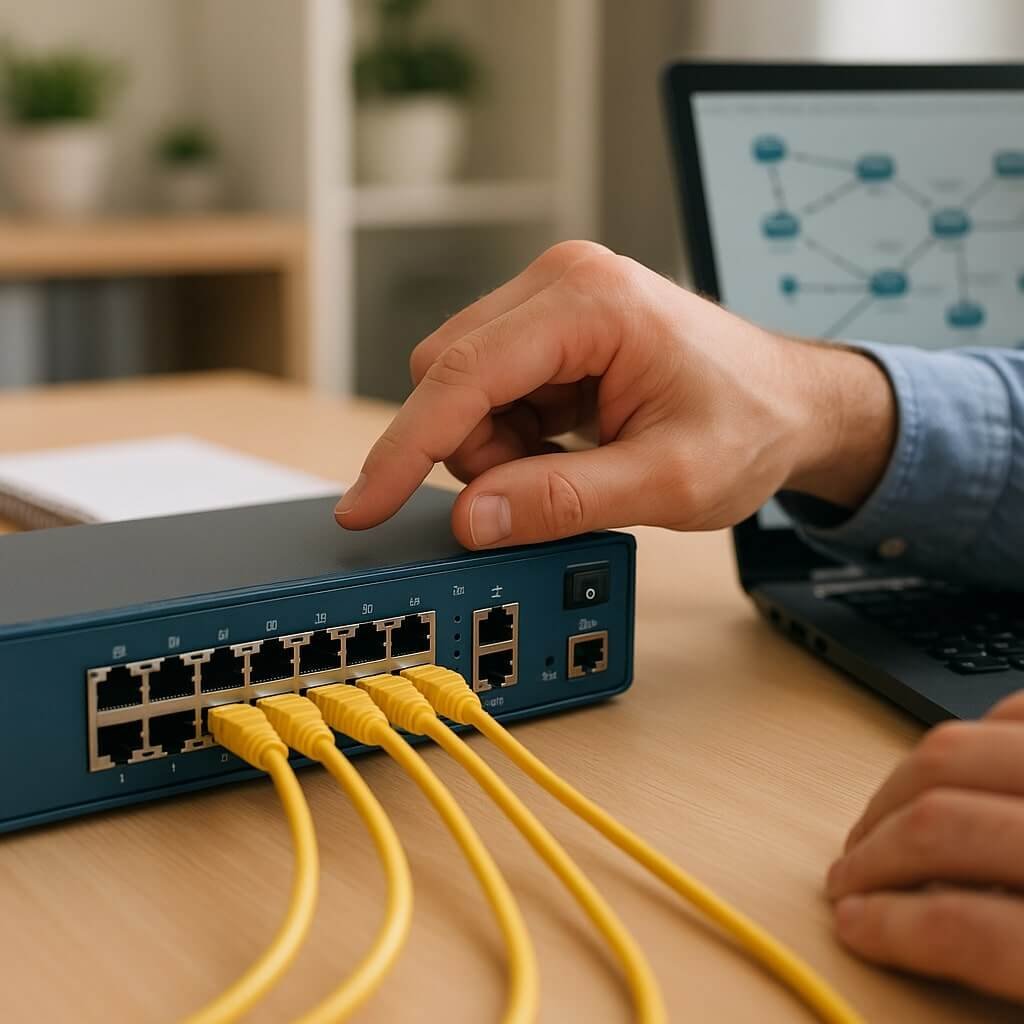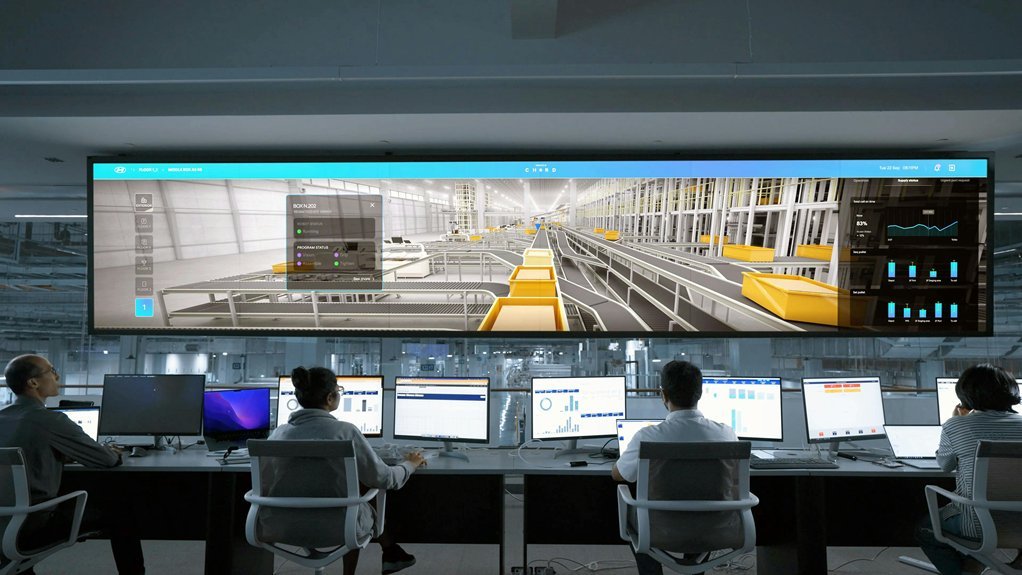Smart home security systems have revolutionised the way we protect our homes and loved ones. As technology advances rapidly, 2025 promises to bring even more innovative and effective solutions to safeguard your property. In this comprehensive guide, we’ll explore the best smart home security systems of 2025, highlighting their features, benefits, and what makes them stand out in a crowded market.
Smart home security systems combine traditional home security with cutting-edge technology, offering convenience, control, and peace of mind through automation and connectivity. Whether you’re looking to deter intruders, monitor your home remotely, or integrate security with your existing smart devices, this guide will help you make an informed decision.
What Are Smart Home Security Systems?
Smart home security systems are integrated technologies designed to monitor and protect your home using internet-connected devices. These systems typically include components such as smart cameras, motion sensors, door and window sensors, smart locks, and alarm systems. Unlike traditional security systems, smart solutions offer real-time alerts and remote control via smartphone apps.
Key elements of smart home security systems include:
- Sensors: Detect motion, door/window openings, and environmental changes.
- Cameras: Provide live video feeds and recorded footage.
- Alarms: Audible alerts to deter intruders.
- Mobile Integration: Allow homeowners to monitor and control systems remotely.
- Automation: Enable systems to work seamlessly with other smart home devices.
By leveraging internet connectivity and intelligent software, these systems provide a more dynamic and user-friendly approach to home security.
Why Invest in a Smart Home Security System in 2025?
In 2025, smart home security systems will be more than just a luxury—they’re becoming a necessity. Several factors are driving homeowners to upgrade or install new smart security setups:
- Advanced Technology: AI-powered analytics improve threat detection and reduce false alarms.
- Remote Monitoring: Stay connected to your home anywhere in the world with mobile alerts.
- Integration: Smart systems work in harmony with voice assistants and other smart devices.
- Affordability: Prices have decreased, making smart security accessible for many households.
- Increased Safety: Proactive monitoring and instant response capabilities enhance overall safety.
- Insurance Benefits: Many insurers offer discounts for homes with certified smart security.
These benefits collectively make investing in a smart home security system a smart move for 2025 and beyond.
Top Features to Look for in Smart Home Security Systems
When choosing the best smart home security system, certain features stand out as essential for effectiveness and convenience:
1. Artificial Intelligence (AI) and Machine Learning
AI-powered systems can differentiate between people, pets, and objects to minimise false alarms. They also learn from patterns to better predict and identify unusual activity.
2. Mobile App Control
User-friendly apps allow you to arm/disarm your system, view live video, and receive alerts instantly from your smartphone.
3. Two-Way Audio
This feature enables communication through security cameras, useful for warning intruders or interacting with visitors remotely.
4. Video Storage Options
Cloud storage or local storage solutions give flexibility in how you save and access recorded footage.
5. Integration Capabilities
Compatibility with other smart devices such as lights, thermostats, and voice assistants (Alexa, Google Assistant, Apple HomeKit) enhances functionality.
6. Battery Backup and Connectivity
Reliable operation during power outages and internet disruptions is crucial for continuous protection.
Detailed Review of the Top 10 Smart Home Security Systems
Let’s delve into the top contenders for the best smart home security systems of 2025. Each system offers unique strengths tailored to different needs and budgets.
System 1: SecureHome Pro X1
- Features: AI-based motion detection, 4K HDR cameras, cloud storage, two-way audio, mobile alerts.
- Pros: Excellent video quality, intuitive app, robust AI filtering.
- Cons: Higher price point.
- Price: $499 (starter kit)
System 2: Guardian SmartShield 360
- Features: Voice assistant integration, geofencing, professional monitoring options, wireless sensors.
- Pros: Seamless smart home integration, flexible monitoring plans.
- Cons: Installation can be complex for beginners.
- Price: $349
System 3: SafeNest Ultra
- Features: Local video storage, solar-powered sensors, encrypted data transmission, emergency SOS button.
- Pros: Strong privacy focus, eco-friendly sensor options.
- Cons: Limited cloud options.
- Price: $399
How to Choose the Right Smart Home Security System for You
Selecting the perfect system involves evaluating your home’s unique requirements:
- Budget: Consider upfront costs and monthly fees.
- Home Size: Larger homes may need more sensors and cameras.
- Tech Savvy: Some systems require DIY installation; others need professional help.
- Integration Needs: If you have other smart devices, ensure compatibility.
- Monitoring Preferences: Decide between self-monitoring and professional monitoring services.
Installation Guide: DIY vs Professional Installation
DIY Installation
Pros: Lower cost, immediate setup, flexible scheduling
Cons: May require technical knowledge, potential for installation errors
Professional Installation
Pros: Expert setup, warranty protection, optimal device placement
Cons: Higher cost, scheduling required
Integration with Other Smart Home Devices
Smart security systems can connect with smart lighting, thermostats, and voice assistants, enabling automation such as turning on lights when motion is detected or locking doors remotely via voice command.
Common Security Threats and How Smart Systems Mitigate Them
From burglary to package theft, smart security systems address various threats by providing:
- Instant alerts for unusual activity
- Real-time video evidence
- Automated alarms and deterrents
Data Privacy and Security Concerns with Smart Home Systems
It’s vital to choose brands that prioritise data encryption, transparent privacy policies, and regular firmware updates to protect your personal information from cyber threats.
Cost Analysis: Upfront vs Long-term Expenses
A typical smart home security system costs between $300 and $600 upfront, with optional monthly monitoring fees ranging from $10 to $50. Maintenance and upgrade expenses should also be considered.
Future Trends in Smart Home Security for 2025 and Beyond
Expect smarter AI, increased use of biometric authentication, predictive threat detection, and deeper integration of the Internet of Things (IoT) to shape the future landscape.
Frequently Asked Questions (FAQs)
1. Can I install a smart home security system myself?
Yes, many systems offer DIY kits with clear instructions, but professional installation is available for more complex setups.
2. Are smart security cameras safe from hacking?
Leading brands use encryption and regular updates to minimise risks, but it’s important to keep devices updated.
3. How much does a smart home security system cost annually?
Costs vary but typically range from $120 to $600, including equipment and monitoring fees.
4. Can smart security systems work without the internet?
Some features may be limited, but many systems have backup options like local storage and cellular connectivity.
5. Will my smart home security system work with voice assistants?
Most modern systems support Alexa, Google Assistant, or Apple HomeKit for voice control.
6. Do insurance companies offer discounts for smart home security?
Yes, many insurers provide reduced premiums for homes with verified security systems.
Conclusion: Secure Your Home with the Best Smart Security System
Investing in a top-tier smart home security system in 2025 is a wise choice for protecting your property and enhancing peace of mind. By choosing a system that fits your needs and budget, you ensure your home stays safe in an increasingly connected world.

